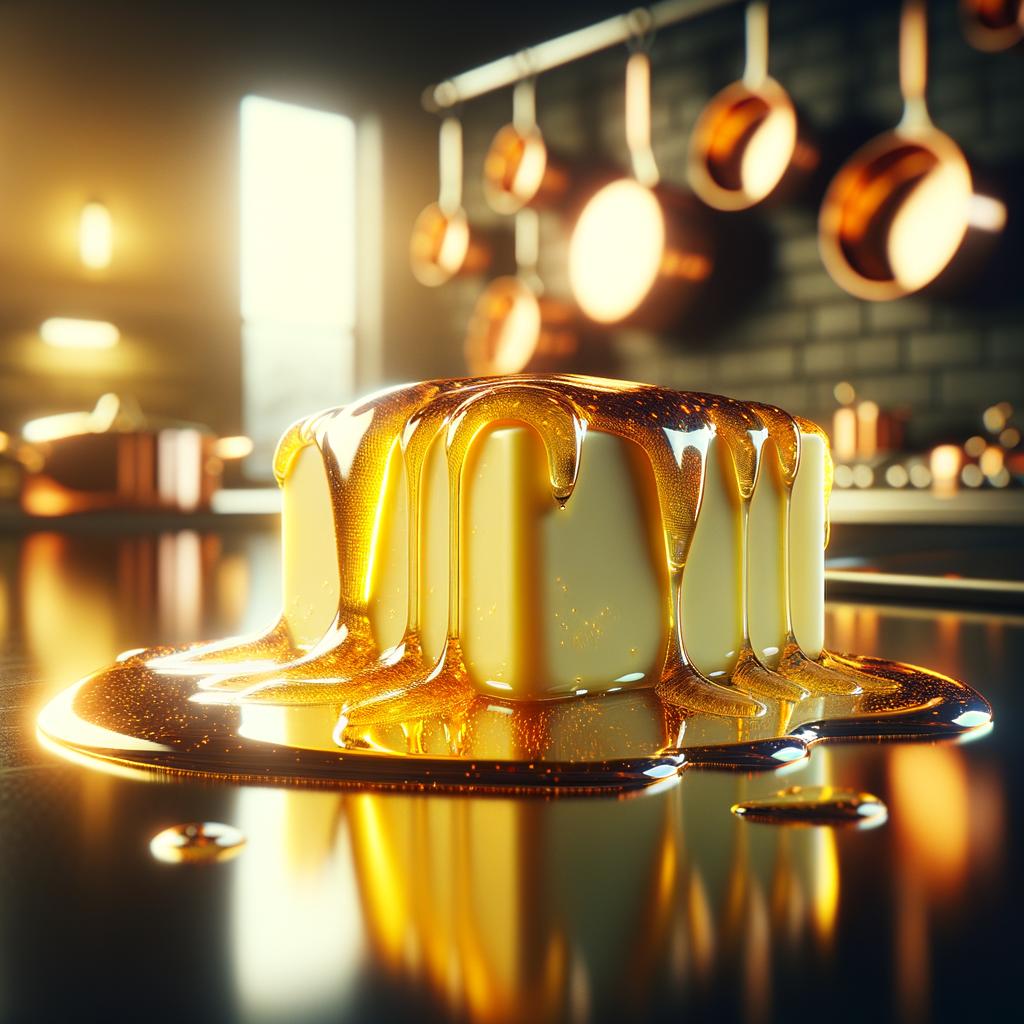Melted Butter

Description
Melted butter, a simple yet magical ingredient, is the liquid form of butter. It boasts a rich, golden hue, a velvety texture, and a warm, comforting aroma. The flavor profile of melted butter is a complex symphony of sweet, creamy, and slightly nutty notes, making it an irresistible delight. The unique characteristic that sets melted butter apart from similar ingredients is its transformative nature. When solid butter melts, it undergoes a metamorphosis, changing not just its physical state but also enhancing its flavor, making it more pronounced and decadent.
Primary Uses
Melted butter is a versatile ingredient that is used in a wide range of culinary applications. It's a key component in baking, enhancing the flavor and texture of cakes, cookies, and pastries. It also plays a starring role in savory dishes, used to baste meats, sauté vegetables, or as a dip for seafood. In addition to its culinary uses, melted butter has cultural significance in many societies. For instance, in Tibetan culture, it's used to create beautiful and intricate butter sculptures during religious festivals.
History
The history of butter is as rich and layered as its flavor. It dates back to 2000 BC, where it was first created by accident during the process of transporting milk. Over time, it became a staple in many cultures, from the ancient Egyptians who used it for medicinal purposes to the Romans who considered it a delicacy. The art of melting butter, however, is believed to have originated in France, where chefs discovered that it could enhance the flavor and texture of their dishes. Over the centuries, the use and popularity of melted butter have only grown, becoming a beloved ingredient in cuisines around the world.
Nutritional Information
Melted butter is not just delicious, but it also has nutritional value. It's a good source of Vitamin A, which is essential for eye health, and Vitamin D, which aids in calcium absorption. It also contains trace amounts of other vitamins and minerals, including E, K, and selenium. However, it's high in saturated fats and calories, so it should be consumed in moderation. Compared to similar ingredients like margarine, melted butter has a slightly higher calorie count, but it's free from trans fats, which are associated with heart disease.

